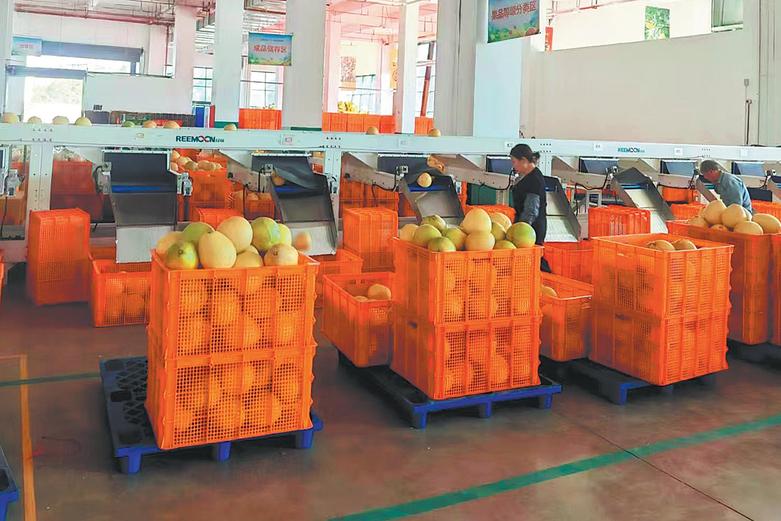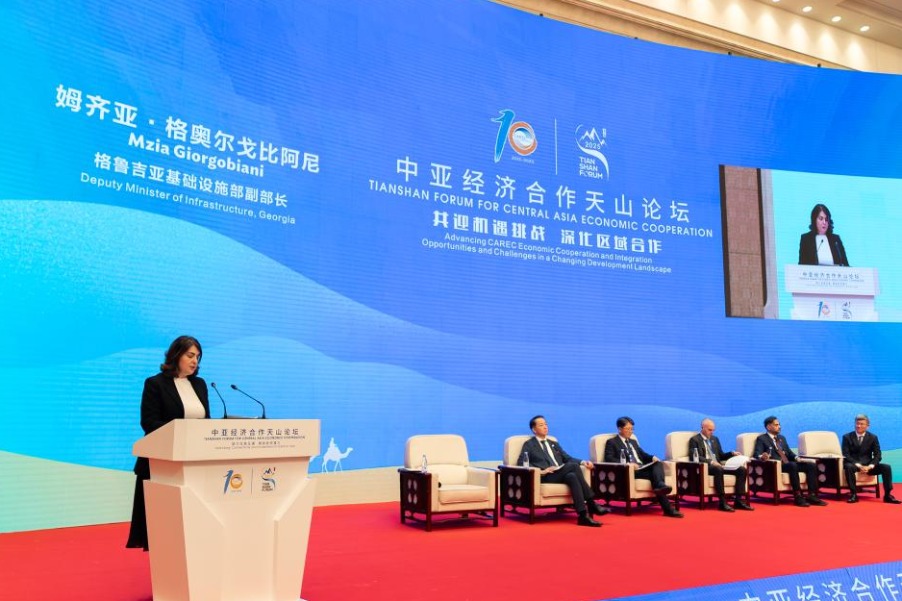Wider opening up: China shares success with world

BEIJING - As a senior banking executive, David Li has already witnessed dramatic changes in China since its opening up decades ago.
After hearing the government work plans this year, the chairman and chief executive officer of JP Morgan China was still excited about new measures to further open the world's second largest economy to overseas investors.
"We are excited about the opportunities to be created in China's development in a 'new era,'" said Li, who just started his second five-year term as a national political advisor.
Li is in Beijing for the ongoing session of the 13th National Committee of the Chinese People's Political Consultative Conference (CPPCC), which runs almost in parallel with the annual session of the National People's Congress (NPC), China's national legislature.
Together dubbed the "two sessions", the March meetings of more than 2,100 national political advisors and about 3,000 legislators are crucial venues where political and economic developments are reviewed and discussed, and key policies and laws adopted.
The 19th National Congress of the Communist Party of China last October said the country is entering a new era, with comprehensive opening up as an important goal. To that end, the government has formulated new policies and put them high on the agenda.
The country will open its doors wider to foreign investors and further liberalize and facilitate trade and investment, Premier Li Keqiang said Monday when delivering the government work report in front of thousands of lawmakers and political advisors.
China will phase in opening up of bank card clearing, remove restrictions on the operation scope of insurance agencies, and ease or cancel limits on foreign holdings in companies in banking, securities, funds, futures, and financial asset management.
For David Li, the measures will be beneficial for the bank's business in this strategically significant market. The company will continue to strengthen its position in China, he said.
Chase Manhattan Corporation, the predecessor of JPMorgan Chase, set up an office in Beijing in 1983, betting on the potential of the world's most populous country which had shut out foreign businesses for decades but was changing rapidly. The return has been fruitful: the bank became the first foreign lender able to register in Beijing 24 years later and has now extended its business to major cities including Shanghai, Shenzhen, and Suzhou.
The bank was among hundreds of thousands of foreign businesses from across the world that sought for opportunities in the modernization and transition of the country. From car makers to internet companies, numerous bold and farsighted investors reaped in huge benefits.
China will open up its general manufacturing sector and expand foreign investment access to sectors like financial services, telecommunications, medical services, education, elderly care, and new-energy vehicles, according to the government work report.
"As more and more areas are liberalized to foreign investment, businesses from almost every industry can find their own growth points," Yang Decai, a national political advisor and professor of economics from Nanjing University, said when discussing the report.
Some 35,652 foreign-funded businesses were established and foreign direct investment in the Chinese mainland hit an all-time high of 878 billion yuan (around $140 billion) last year against a grim global climate.
Analysts believe more measures are in the pipeline. The negative list that determines where foreign participation is prohibited or limited is expected to become shorter. Foreign investors will see more favorable policies in taxation, less red tape in investment approval, and stronger protection of intellectual property rights.
Ahead of the 40th anniversary of the reform and opening-up this year, China's move set an example for a world plagued by protectionism and showed the willingness to share its success with rest of the world, no matter developed or developing countries.
The unwavering stance in openness sent a signal to the world and boosted confidence in free trade and investment, said Zhang Yuyan, director of the Institute of World Economics and Politics of the Chinese Academy of Social Sciences. "It is invaluable to global long-term growth," he said.
The Belt and Road Initiative, which aims to build trade and infrastructure networks connecting Asia with Europe and Africa and promote industrial cooperation, has emerged as an important means to seek reciprocal development.
From infrastructure builders to financiers, Chinese businesses are looking for win-win opportunities in countries and regions along the routes.
"Our business strategy must fit into the development of host countries and address their problems," said Zou Lei, national political advisor and chairman of Dongfang Electric Corporation (DEC).
With leading clean energy technology, the power generator manufacturer helped build green and efficient power plants in less prosperous countries in Africa, Southeast Asia, and other parts of the world. A DEC-contracted 1.87 GW-capacity hydropower station doubled Ethiopia's power generation, solving the electricity shortage and bolstering the local economy.
DEC will partner with global peers to increase its presence in the Belt and Road regions, Zou said. The company has more than 80 GW of installed capacity in over 70 countries and regions.
China's non-financial investment to countries involved in the Belt and Road Initiative totaled $14.4 billion last year, up from 8.5 percent in 2016.
The CPPCC National Committee's session started Saturday and will run for nearly two weeks. As a national political advisor, Zhang Yuyan plans to propose accelerating the revision of the foreign trade law.
"As China has become a major trade nation for both goods of services, the current law amended in 2004 cannot meet the changing global circumstances," Zhang said. "The revision will help China better integrate into the world economy and smooth trade frictions."
- Intl students showcasing global business acumen in Shanghai
- CPC expels former senior official of Guangxi
- Shanghai university unveils sustainable, efficient water treatment system
- Fire at auto business park in Jiangsu claims one life
- Magnitude 6.0 earthquake strikes Akqi county in Xinjiang
- Shenzhou XXI team to carry out first spacewalk





































